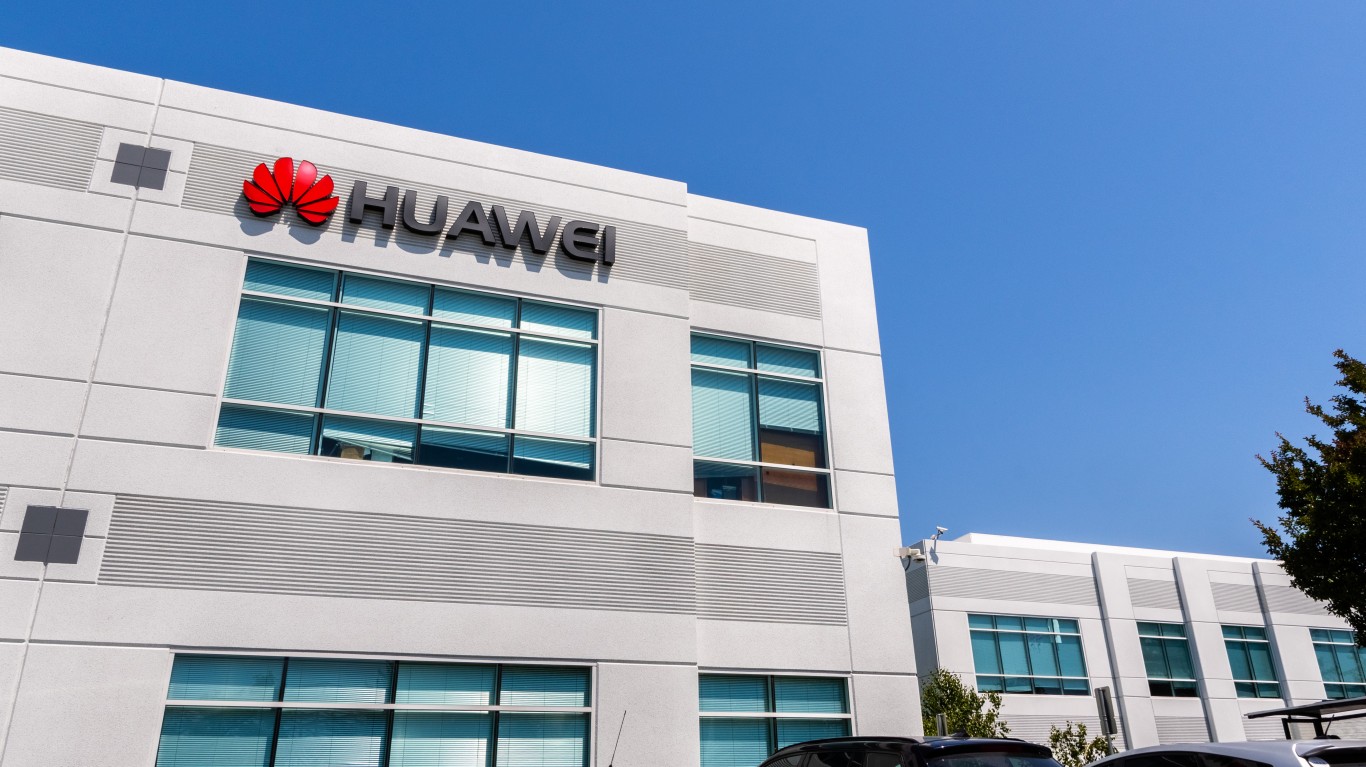
The discussion revolves around the potential investment in Chinese tech stocks amidst current U.S.-Chinese tensions and geopolitical factors. Despite the risks, there may be significant returns due to low valuations. Some prominent investors are increasing their exposure to these stocks, such as David Tepper. Key companies like Tencent, PDD Holdings (NASDAQ: PDD), JD (NASDAQ: JD), NetEase (NASDAQ: NTES), Baidu, and Alibaba are mentioned, highlighting their growth and profit margins. The conversation emphasizes assessing one’s risk tolerance, considering the geopolitical landscape, and potentially treating Chinese tech stocks as a small, high-risk portion of a diversified portfolio, akin to investments in cryptocurrencies.
Transcript:
All right, Eric, let’s turn to Chinese tech stocks.
Now, with all of the recent U.S.-Chinese tension and things like the U.S. Chips Act and some of the more advanced chips that the United States is forcing companies to withhold selling to China, it might seem like going into Chinese tech stocks is an absolute risk right now and you’re going to be lighting your capital on fire.
But we might want to remind investors that sometimes when you go into the sector that is experiencing turbulence or it does sort of have some warts on it, so to speak, and some uncertainty, that’s often where you get the greatest returns over the long run because you were there first before anyone else sort of had the courage and clarity to see through the clouds there.
So Chinese tech stocks have had a tough couple of years and the U.S.-Chinese tensions are not helping the narrative here.
Well, let’s start looking at some fundamentals.
Is it time to start buying Chinese tech stocks?
Yeah.
Yeah, you know, like you said, if you’re the first one to see through those clouds, rewards can be fantastic.
And right now we’re seeing some kind of big fund managers making surprising additions to Chinese stocks in their portfolio.
One of the names that immediately comes to mind is David Tepper, who’s been increasing his Chinese exposure significantly.
And the reason is they’re trading at very low valuations, especially when you compare it to the biggest US stocks where even having valuations over $3 trillion are trading for 35 times earnings often.
We look at the one-year returns for Chinese stocks.
You’ve got Tencent at 18%, PDD Holdings at 124%, JD at negative 9%, NetEase at 5%, Baidu at negative 20%, and Alibaba at 1%.
Clearly, one stock in this group stands out.
That’s PDD Holdings, which is Pinduoduo.
I apologize if my pronunciations are bad.
I very much struggle with this, but this is a company with $40 billion in the top line, $11 billion on the bottom line, chunky margins, growing revenue at 105%, profits at 116%.
If the stock was in the US, it would definitely trade for $500 billion or more, but it’s not.
This is clearly the crown jewel amongst this cohort.
But the entire group is continuing to grow.
JD is growing revenues at 5%, profits at 26%, Baidu revenue at 7%, profits at 43%, Alibaba at revenue at 8%, profits at 10%, Tencent from revenue and a little worse on the profit side.
So the question is, should you be investing in these companies if they’re trying a far lower valuation?
And in addition to that, they are still as a group showing growth?
Well, I would say you need to ask yourself a few questions.
Number one, how comfortable are you with the potential for a zero out?
One consideration with Chinese stocks is the structure that they’ve used to be able to reach U.S. investors has always been convoluted.
There are some considerations that if there was a conflict potentially over an area like Taiwan, this could just be a zero out for U.S. investors.
Obviously, we would hope that there would be warnings, that tensions would be escalating, but that will continue to be an anchor under evaluation.
Second, what industries do you want if you’re going to look at Chinese stocks?
You know, with a lot of areas, you’ve got banking, which is, you know, largely state owned.
But one of the anchors is if you’re looking at a company like Alibaba, the government intervening in the business is what’s largely hurt a lot of the growth rates.
And third, do you want just Chinese exposure?
Do you also want multinational exposure?
If Chinese, Alibaba and Tencent are going to offer more pure place into the market itself, both multinational exposure, PDD has ownership in Timu, which is giving a lot of international growth.
So maybe that’s the stock you want to consider because you’re getting not just domestic demand, but also international.
So Austin, I would just say Chinese stocks right now, they are cheap.
But you’re going to have to live with the reasons that they’re cheap, which is those geopolitical factors and also the fact that the government has put a lid on growth in the past.
And people who have invested and been burned by this, it’s very hard to come back and do it all over.
When I hear you talk about those things, Eric, it feels to me when I’m thinking maybe about portfolio construction and position sizing, I don’t want to strain the analogy too much but maybe think of it a little bit like crypto.
Right.
Crypto has this really great narrative, but also an uncertain future.
We’re not sure, you know, which coins will end up becoming meaningful or platforms themselves.
So but there is a lot of potential there.
It’s a lot it’s got lottery ticket like economics.
So if you’re saying, hey, maybe I want to put 3%, 5% of my portfolio in crypto just because of the potential upside, you might want to think about these Chinese stocks in a similar vein.
We’re not saying go hard because there is a risk of real zeroing out.
But at these valuations, if those tensions get smoothed over, if some of that government intervention starts to pull back, these could be multibagger stocks at today’s prices.
So these might be worth a portion of your portfolio, but size it correctly for the risk involved.
Yeah.
Excellent point, Austin.
Just thinking about this as almost an asset class of its own, if you’re going to go into it and just keep it to a size that you’re going to be very comfortable with, given the potential downsides we’ve discussed in this video.
Travel Cards Are Getting Too Good To Ignore (sponsored)
Credit card companies are pulling out all the stops, with the issuers are offering insane travel rewards and perks.
We’re talking huge sign-up bonuses, points on every purchase, and benefits like lounge access, travel credits, and free hotel nights. For travelers, these rewards can add up to thousands of dollars in flights, upgrades, and luxury experiences every year.
It’s like getting paid to travel — and it’s available to qualified borrowers who know where to look.
We’ve rounded up some of the best travel credit cards on the market. Click here to see the list. Don’t miss these offers — they won’t be this good forever.
Thank you for reading! Have some feedback for us?
Contact the 24/7 Wall St. editorial team.





